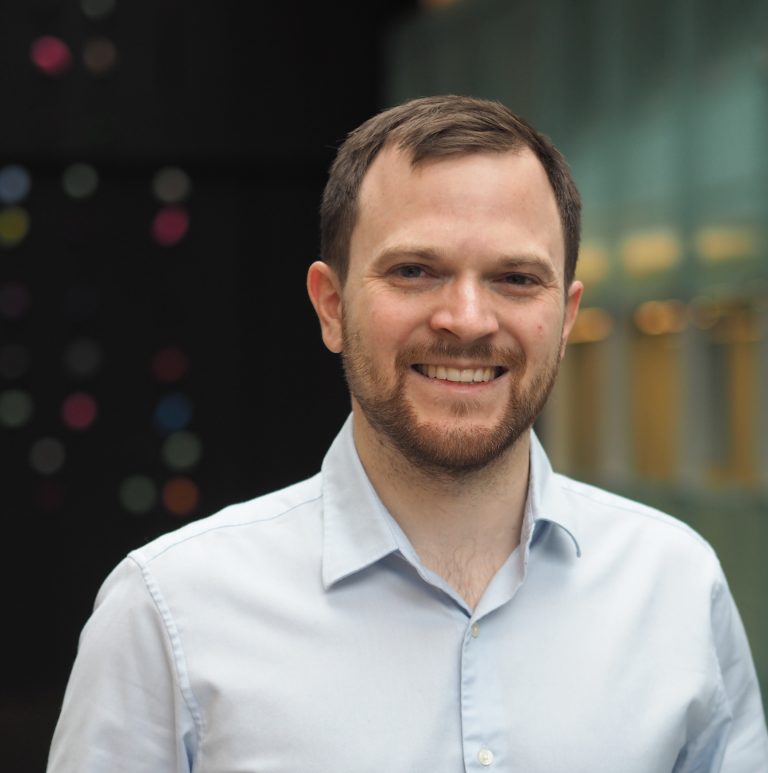Welcome to Moritz Münchmeyer's Cosmology and AI for Science Group
The research group of Prof. Moritz Münchmeyer is developing computational and theoretical methods to probe fundamental physics with cosmology as well as AI for science methods in physics. With our methods we are contributing to several experimental collaborations, in particular Simons Observatory and Rubin Observatory. You can learn more about our research here. At UW Madison we are part of the Cosmology Group and the High Energy Physics group.
A part of our research is focusing on machine learning methods, which have exciting potential for cosmology and theoretical physics in general. With this work we are contributing to the Machine Learning Initiative of the Physics Department.
If you are interested in joining our group please contact Moritz by email at muenchmeyer@wisc.edu or drop by his office 6205 in Chamberlin Hall.

Recent news
December 2025. I’ve joined the editorial board of JCAP, one of the leading journals in cosmology and astroparticle physics.
October 2025. Two postdoc searches: We are looking for a postdoc in CMB x LSS in our group. Advertisement and details here. We are also looking for a joint postdoc on AI for theoretical physics with Perimeter institute. Advertisement and details here.
August 2025. If you are interested in Physics and LLMs, you can watch my talk about AI Reasoning for fundamental physics at the IAIFI summer workshop in Harvard, and a similar one at Perimeter Institute‘s Charting the Future Symposium. If you are interested in this topic you might want to join our upcoming Aspen 2026 Summer Workshop on AI Reasoning for Physics.
August 2025. We were awarded a new NSF grant for CMB and LSS physics with Simons Observatory and Rubin Observatory. The grant will fund a postdoc and a graduate student. Look out for our postdoc job advertisement in the fall if you are interested.
July 2025. In out first followup to TPBench, we studied test-time scaling techniques and symbolic verification LLM agents in theoretical physics. The pre-print is here (update: acccepted to NeurIPS 25 ML4Phys workshop). Congrats to Tianyi and Zhiqi.
July 2025. Congrats to Jordan and Yurii’s paper Reconstruction of Dark Matter and Baryon Density From Galaxies, which is a followup to our earlier work on a combined GNN-CNN method presented at the NeurIPS 24 ML4PhysicalSciences workshop.
June 2025. Yurii and Anderson led a state-of-the art measurement of the velocity field of the universe using the kSZ effect with ACT data. The preprint is on arxiv and we will soon add a sister paper with details of our novel QML estimator (update: here it is). We proposed this method several years ago and it is great to see it working in practice. The future is exciting for this method.
February 2025. Our Theoretical Physics Benchmark (TPBench) is our on arxiv. Check out the website tpbench.org. We provide an up-to-date evaluation of LLM performance in theoretical physics, and the first research-level benchmark in this field. In you are interested in contributing, please check out our website. Update: The paper is now published by MLST.
October 2024. The NSF AI Research Institute in Astronomy SkAI is coming to the midwest, headed by Northwestern University! Happy to be involved as external member with my group!
Mai 2024. Lecture slides for my Spring semester course Physics 361 – Machine Learning in Physics, taught with Gary Shiu, can be found here.
March 2024. Our group has joined Simons Observatory as Institutional Members, together with Peter Timbie’s group.
December 2023. Congrats to Dr. Adam Rouhiainen who just defended his PhD thesis. Adam also presented his new paper Super-Resolution Emulation of Large Cosmological Fields with a 3D Conditional Diffusion Model at Neurips 2023 (Machine Learning in the Physical Sciences Workshop).
September 2023. Happy to teach my field, Computational and Theoretical Cosmology, to our grad students this fall in physics 805. PDF lecture notes are online here.
August 2023. We received the NSF grant “CDS&E: Probabilistic modelling of fields and point clouds in cosmology.” This grant will help us develop machine learning techniques to stochastically model the non-Gaussian matter distribution of the universe. We are also part of the just renewed DOE high-energy group grant of the UW Madison physics department.
June 2023. Some recent projects of our group. Grad student Yurii Kvasiuk developed new methods to analyze CMB data using auto-differentiation and machine learning. Postdoc Utkarsh Giri developed a new method to probe primordial non-Gaussianity with large-scale structure. Grad student Sai Tadepalli (with advisor Dan Chung) applied EFT methods to isocurvature perturbations.
April 2023. I’m looking forward to be part of the first cohort of our Data Science Institute (DSI) faculty fellows. The DSI, led by physics Prof. Kyle Cranmer, will bring together data scientist from all areas of UW Madison.
More news on x.com/moritzmunchmeyr